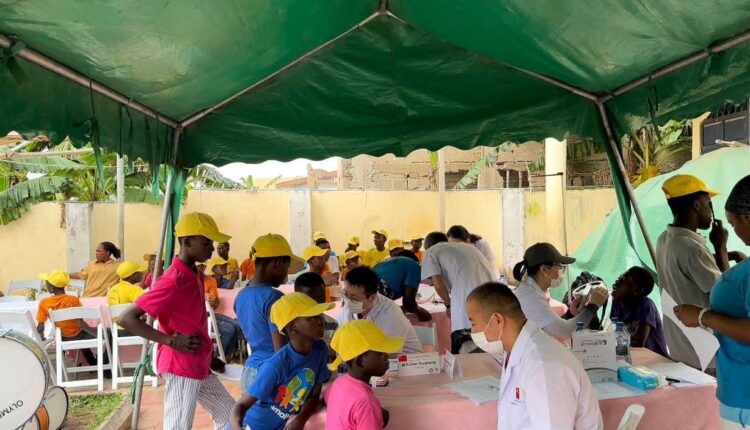In a heartwarming initiative, UNESCO, in partnership with the Chinese government, has launched a series of surgeries and free medical screenings for HIV-infected orphans at the Compassion Orphanage.
This collaborative effort aims to provide essential healthcare and support to some of the most vulnerable members of society.
Mother-to-child transmission (MTCT) of HIV remains a significant public health challenge, particularly in sub-Saharan Africa.
Without intervention, the risk of an HIV-positive mother transmitting the virus to her child during pregnancy, childbirth, or breastfeeding ranges from 15% to 45%. However, with effective antiretroviral treatment, this risk can be reduced to below 5%.
Despite medical advances, stigma surrounding HIV/AIDS continues to be a major barrier to the prevention and treatment of the disease.
Many individuals, including children, face discrimination and social exclusion due to their HIV status. This stigma often leads to delays in seeking treatment and a lack of support systems for those affected.
Speaking at the event, the UNESCO ambassador to Ghana, Edmond Mouakala emphasized the importance of healthcare and education for the affected children.
“HIV and education are crucial for these children. Ensuring they receive proper care is imperative for their growth and development,” the ambassador stated.
The CEO of the Compassion Orphanage expressed profound gratitude for the initiative, highlighting its significant impact on the lives of the children.
“We are immensely grateful for this gesture. It means a lot to the children and the entire community here at Compassion Orphanage,” he said.
Doctors from China, who are spearheading the medical interventions, underscored the critical need for timely and adequate healthcare.
“This medical intervention is essential to improve the health and well-being of these children, giving them a better chance at a healthy future,” one of the doctors explained.
This initiative is a testament to the power of international collaboration in addressing critical health issues and improving the lives of vulnerable children.
With continued support and care, the future of these young ones is set to improve, reflecting the profound impact of such global partnerships.


Comments are closed.